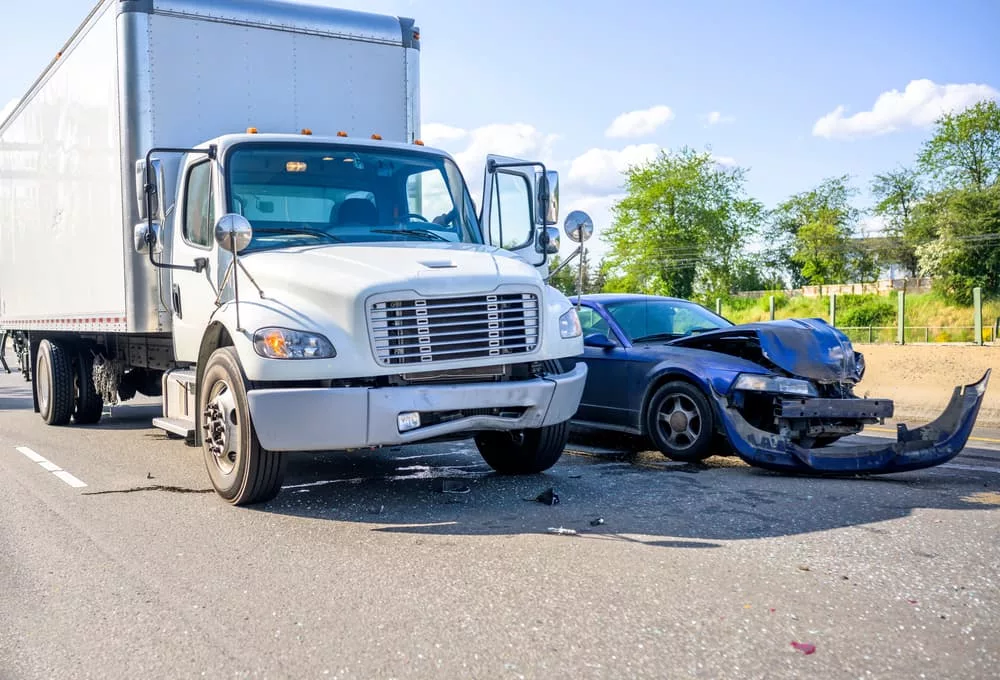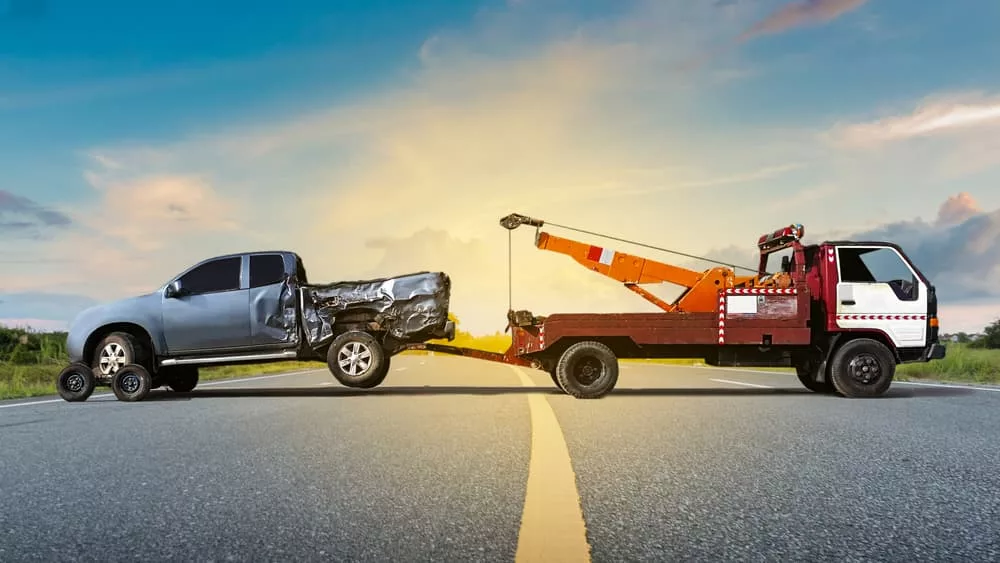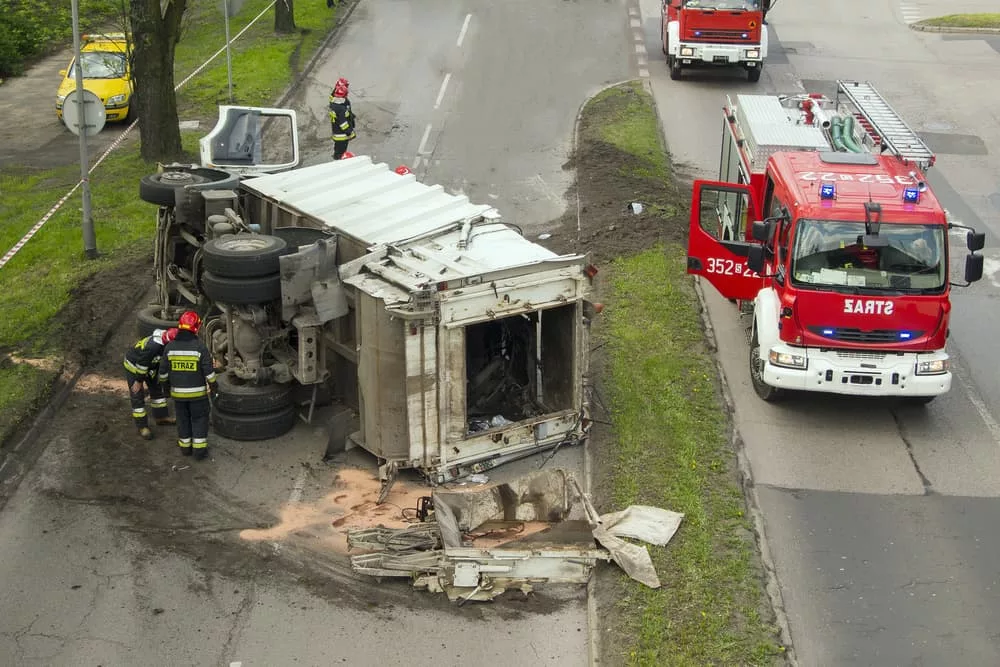Involvement in a truck accident can leave you physically injured, emotionally traumatized, and faced with daunting financial burdens. As a victim, you deserve adequate compensation for your damages, including medical bills, lost earnings, pain and suffering, and other losses arising from the accident.
The process of filing a truck accident lawsuit can be complex and full of legal intricacies, like gathering evidence and negotiating with insurance companies. Having an experienced truck accident lawyer by your side will not only provide you with expert guidance but also ensure that your rights are protected throughout the process. Knowing the steps involved in pursuing a claim, with the assistance of a dedicated lawyer, will help you obtain the best legal outcome and the maximum compensation you deserve.
Establishing the Basis for the Lawsuit
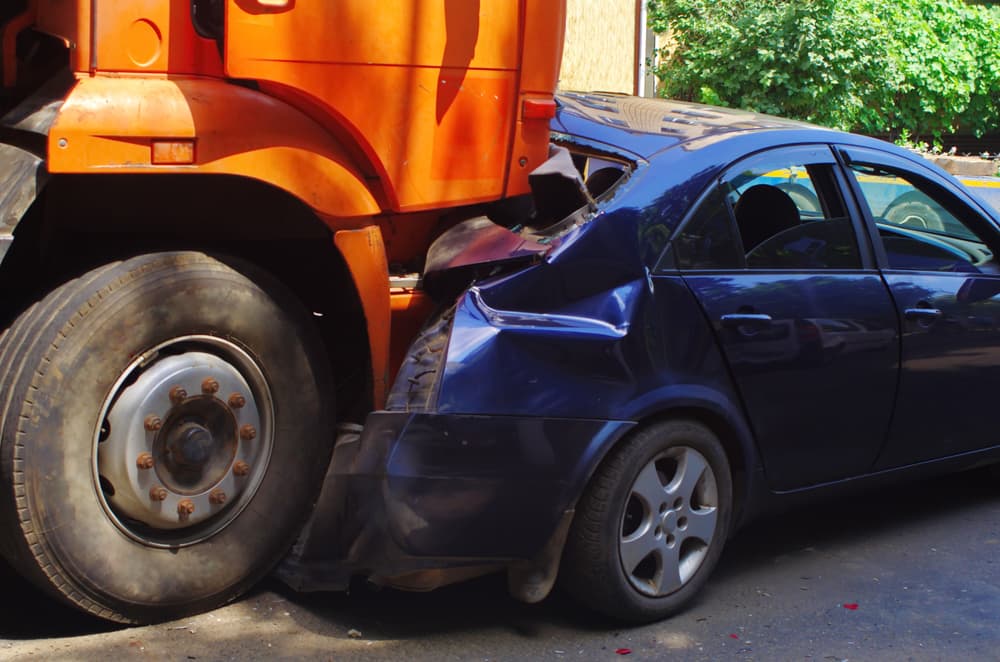
Negligence describes a person’s failure to exercise the level of care and caution that a reasonable person would have exercised in similar circumstances. In truck accident lawsuits, negligence is the primary basis for holding a party or parties liable and receiving an award for damages. To establish a successful truck accident lawsuit, your attorney must prove that the negligence of one or more parties directly caused your injuries or damages.
Gathering Evidence
Solid evidence should be available to support your truck accident lawsuit, as it could help to establish the negligence of the at-fault parties and prove the extent of your injuries and damages.
The types of evidence that your attorney can gather to help build a robust case in your favor should include:
- Photographs of the accident scene.
- Witness statements.
- Police reports.
- Medical records.
- Expert testimony.
A police report typically includes accident details, citations, and the officer’s observations and opinions. Medical records prove the extent of your injuries and the necessary treatment. In some cases, it may help to enlist expert witnesses, such as accident reconstruction specialists or medical professionals, to analyze and interpret the evidence.
Identifying Potential Defendants
Your attorney may identify many defendants in your case who can be potential resources for damage recovery for injuries you sustained in a truck accident. In many cases, you can hold the truck driver liable for the accident, particularly if their speeding, distracted driving, or driving under the influence contributed to the incident.
Other defendants, however, such as the manufacturer of the truck or its parts or the truck maintenance providers, were not present at the accident scene but you could also hold them liable.
Trucking Companies
Trucking companies can be liable for their drivers’ actions and for their own negligence in hiring, training, or supervising drivers. If a company’s policies or practices led to the accident, such as by pushing its drivers to skip rest breaks, your attorney can hold the company liable for the resulting damages.
The Truck Owner
The truck owner may be a separate entity from the trucking company or driver and may bear responsibility for the accident if its negligence, such as improper maintenance, contributed to the crash.
Determining the Jurisdiction
You generally file a lawsuit in the county or state where the accident occurred. Where the defendants reside or conduct business, however, can also influence the choice of jurisdiction, especially if these locations are in a different county or state from where the accident occurred.
Laws governing truck accident and personal injury claim jurisdictions usually stipulate that incidents of injuries to residents or damage to property that defendants who live in or out of the state caused but who committed such acts while visiting the state will be subject to the courts in that particular state.
Any products or materials that someone had manufactured or serviced anywhere in the country but that the defendant had used and consumed in a particular state will fall under the jurisdiction of those courts.
Observing the Statute of Limitations
The statute of limitations refers to the legal time limit for a person involved in a truck accident to file a personal injury lawsuit. This deadline aims to ensure that an individual brings a claim in a timely manner while evidence, witnesses, and memories remain fresh, promoting fair and accurate justice.
The specific time limit for filing a truck accident lawsuit varies depending on the jurisdiction but generally ranges from one to four years after the date of the accident. If filing a wrongful death claim, the statute of limitations is usually shorter than for a personal injury claim because of the seriousness of the claim.
Unfortunately, failing to file a lawsuit within the statute of limitations period can have severe consequences, as the defendant can request that the court dismiss your case. If the court grants the dismissal, you will lose your right to pursue compensation for your injuries and damages, regardless of the merit of your claim. Your lawyer, however, will ensure they file your lawsuit in a timely manner. Additionally, there are various exemptions to the statute of limitations, and your lawyer can navigate them on your behalf.
For example, the law may extend, toll, or pause the deadline under specific circumstances, such as when the defendant leaves the state or hides within the state so that you cannot serve them.
Drafting and Filing the Complaint
The complaint formally initiates your truck accident lawsuit and outlines the basis for your claim. One of the key components of the complaint is the statement of facts, in which your attorney concisely narrates the events leading to the accident, the negligent conduct of the defendants, and the resulting injuries and damages.
The complaint also includes the legal basis for your claim, detailing the specific acts of negligence that the defendant committed and explaining how those acts caused your injuries. Your attorney will ensure that they clearly state the legal basis for your claim and support it with the facts of your case.
In the complaint, your attorney will enumerate the damages you seek due to the accident, such as medical expenses, lost income, and compensation for pain and suffering and property damage. Your lawyer will classify these damages as economic or non-economic and should quantify them to the extent possible at this stage of the litigation.
Your attorney will adhere to the specific rules and procedures governing the drafting of the complaint, which may vary depending on the jurisdiction. These rules include following a prescribed format, using particular language, and complying with other legal requirements. They will then file the complaint with the appropriate court, which is generally the one in the chosen jurisdiction. You may need to pay filing fees.
Serving the Defendants
After filing the complaint with the court, the next step is to serve the defendants with a copy of the complaint and a summons. This legal document officially notifies the defendants of the lawsuit and mandates their response within a specified time period.
The purpose of serving the defendants is to establish the court’s jurisdiction over them and to allow them to defend themselves. An attorney will take the appropriate steps to ensure the defendants receive notification.
Methods of Service
There are several methods of serving the defendants, depending on the jurisdiction’s requirements and the case’s specific circumstances. The attorney’s office will notify defendants by personal service, service by mail, or even service by publication if the defendant’s whereabouts are unknown.
Proof of Service and Its Importance
After serving the defendants, your attorney will obtain and file a proof of service with the court, which confirms the successful delivery of the complaint and summons to the defendants. This document demonstrates that the attorney has given appropriate notification of the lawsuit to the defendant. Failure to provide this proof of service could result in the dismissal of your case.
Discovery Process
The discovery process of a truck accident lawsuit allows both parties to gather and exchange information, evidence, and testimony relevant to a case. It serves to help the parties understand the strengths and weaknesses of each other’s positions, facilitate settlement negotiations, and, if necessary, prepare for trial.
The discovery process typically begins after the defendants have filed their response to the complaint, and it may continue for several months, depending on the case’s complexity.
The different types of discovery tools can include:
- Interrogatories.
- Requests for the production of documents.
- Depositions.
Interrogatories are written questions that your attorney will prepare and serve to the defendants, requiring them to provide written answers under oath. These questions may pertain to the facts of the case, the defendant’s knowledge of the events, or other relevant issues.
Your attorney may serve requests to produce documents on the defendants, asking them to provide copies of records, reports, or other documents relevant to the case, such as maintenance records, logbooks, or communications between the driver and the trucking company.
Depositions are formal interviews in which your attorney will question the defendants, witnesses, and other relevant parties while they are under oath. Depositions provide an opportunity to elicit testimony and uncover important information that the defendants did not disclose through written discovery.
Settlement Negotiations
In many cases, you can resolve a truck accident lawsuit through settlement negotiations without the need for a trial. Settling a case can offer several benefits, including reduced legal costs, less time spent in litigation, and a more predictable outcome.
Settlements also afford the parties greater control over the terms of the resolution instead of leaving the decision to a judge or jury. The defendants’ financial resources, their willingness to accept responsibility, and the potential influence of a trial on their reputation may affect their desire to negotiate.
Your personal injury attorney will play a key role in negotiations. They will thoroughly evaluate your case and the available evidence to determine an appropriate settlement value, taking into consideration your case’s specific circumstances and comparable settlements and verdicts in similar cases.
Your attorney will then present a strong argument to the defendants and their insurance companies, along with evidence and expert opinions, to persuade them to agree to a fair and just settlement.
If the parties cannot settle through direct negotiations, mediation may be an alternative dispute resolution method. Mediation involves the appointment of a neutral third-party mediator who assists the parties in identifying their respective interests and exploring potential solutions.
The mediator facilitates discussions and negotiations but does not make any decisions. While mediation is not always successful, it can often lead to a mutually agreeable resolution, avoiding the need for a trial.
Trial
If you cannot reach a settlement or the defendants refuse to accept responsibility, your truck accident lawsuit may proceed to trial. A trial is a formal judicial proceeding in which the parties present their arguments and evidence to a judge or jury.
The trial process can sometimes be lengthy, complex, and emotionally draining, but achieving a fair and just resolution is sometimes necessary. Your attorney, however, will be by your side with the experience to navigate this process and alleviate your emotional stress.
What Happens During Trial
At trial, your personal injury attorney will present your case by introducing evidence, calling witnesses, and making arguments to support your claim. The defendants will also have the opportunity to present their defense, challenge your evidence, and attempt to convince the judge or jury that they are not liable for your injuries or damages.
The Role of the Judge and Jury
The judge presiding over the trial will make decisions on procedural matters, rule on objections that the parties raise, and instruct the jury on the relevant law. If the case takes place before a jury, the jury will ultimately decide the outcome by determining issues of fact, such as whether the defendants were negligent and to what extent they were responsible for your injuries. The jury will also determine the amount of damages you should receive.
Appeals
If you are unsatisfied with the trial’s outcome, your attorney may discuss the possibility of appealing the decision. Appeals are limited to specific legal errors or procedural issues that may have occurred during the trial, and successful appeals can result in a new trial, a modified judgment, or other forms of relief.
Tips for Working with a Personal Injury Lawyer
Hiring an experienced personal injury lawyer with a track record of success in handling truck accident lawsuits will help you achieve the best possible outcome for your case. They will have the skills, knowledge, and resources necessary to effectively investigate, analyze, and present your case and negotiate or litigate on your behalf.
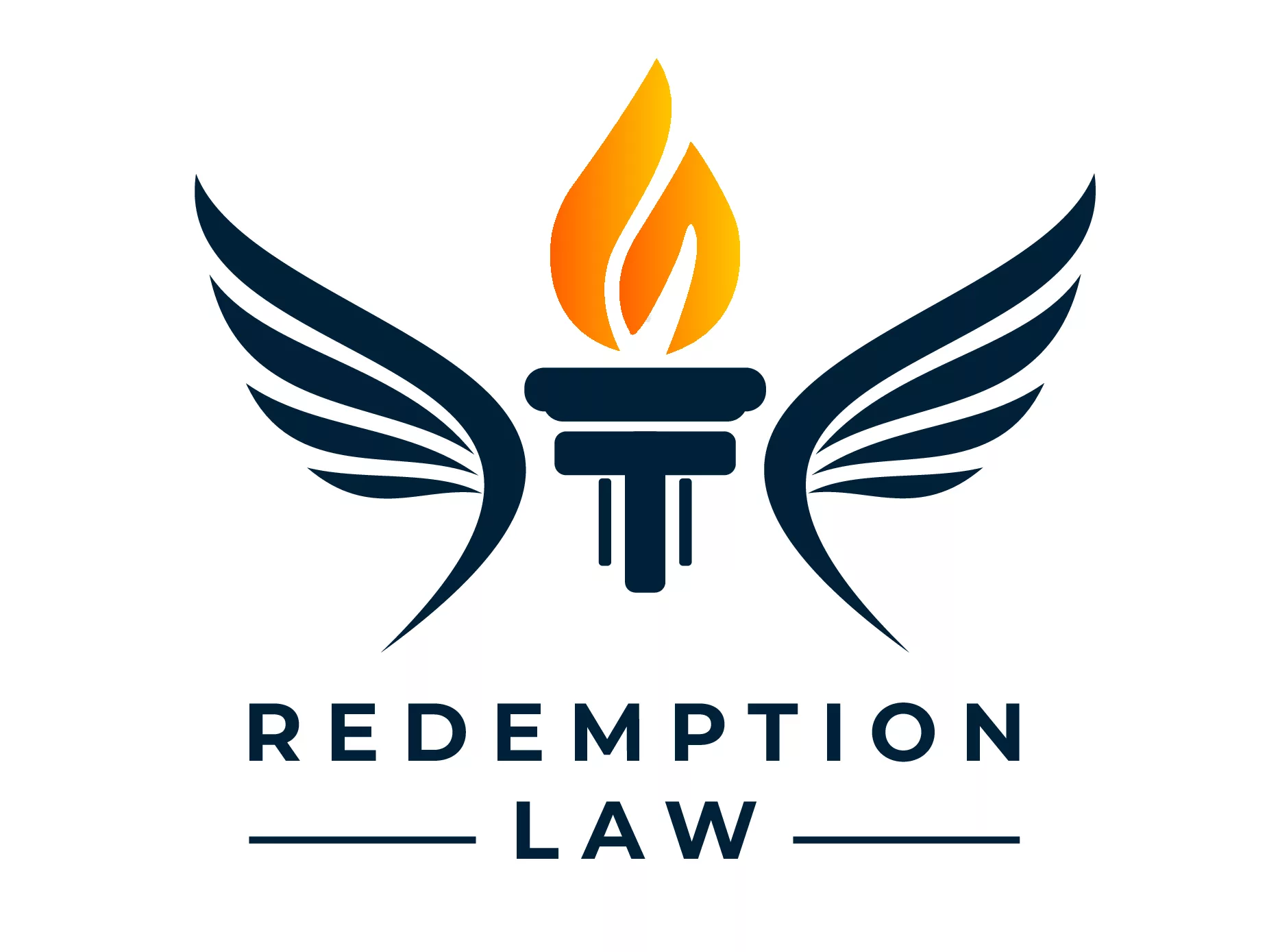
Build a strong working relationship with your personal injury lawyer for the success of your case. You should strive to maintain open and honest communication with your lawyer, providing all relevant information regarding the accident, your injuries, and any other factors that may influence your case.
In addition, you should be responsive to your lawyer’s requests for information and follow their advice throughout the legal process. Your lawyer can present your case in the best possible light and fully protect your rights.
Most personal injury lawyers work on a contingency fee basis, meaning they only collect a fee if they successfully recover compensation on your behalf. The contingency fee is typically a percentage of the total amount recovered through settlement or trial.
You should understand this fee structure and any additional costs, such as court fees, expert witness fees, and trial expenses, that you may incur during the course of your case. Discuss these matters with your attorney at the outset and ask questions if you have any concerns or uncertainties.



